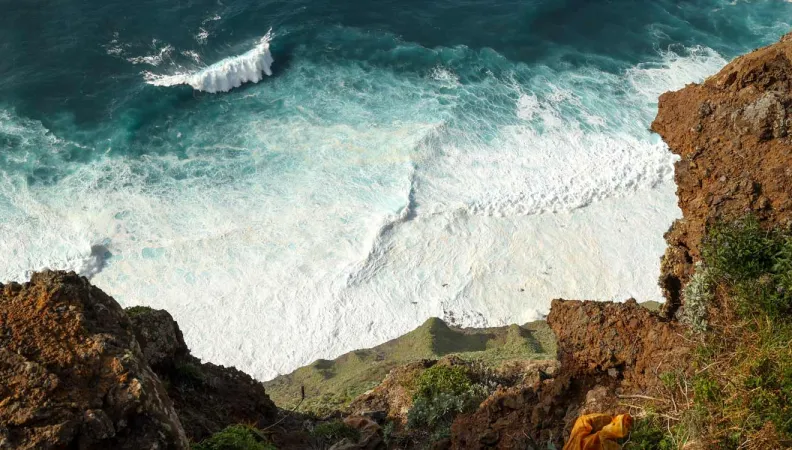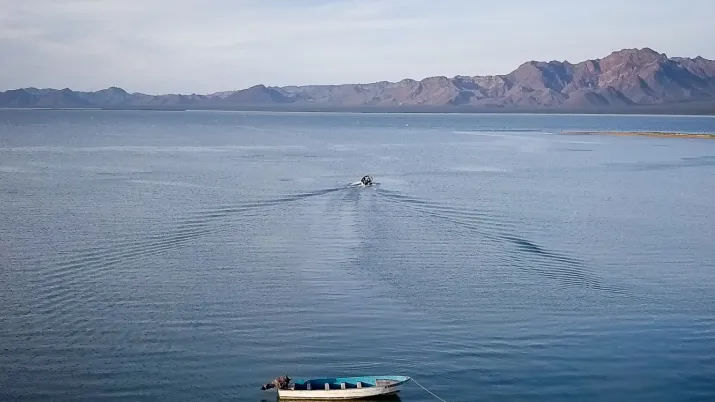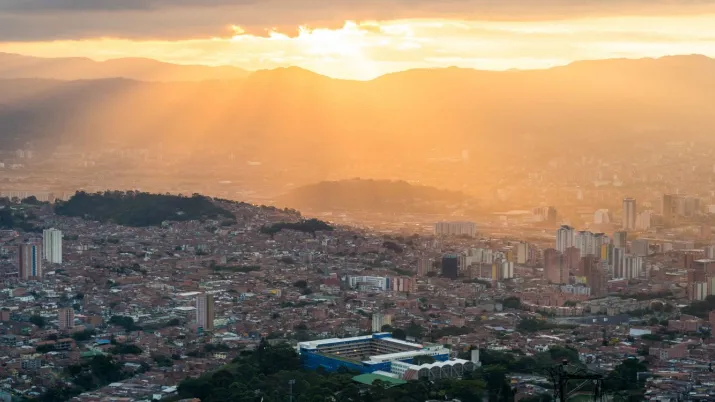Share the page
Development Banks Work together to make the Oceans a Priority
Published on

From pollution and over-exploitation to climate change, the ongoing degradation of the oceans calls for the mobilization of everyone concerned. That's why on September 5, at the fourth annual Finance in Common Summit (FiCS) in Cartagena, Colombia, nine public development banks signed a joint declaration of support for a sustainable blue economy and better protection of the oceans. We explore the ramifications.
The "Oceans" agenda first made an appearance at the Finance in Common Summit held on September 4-6 in Cartagena, Colombia. In a joint text, nine banks, including Agence Française de Développement (AFD), have pledged to work together to do more and better to protect and sustainably use marine resources. This joint effort and its progress will be presented at the United Nations Ocean Conference (UNOC) scheduled to take place in France in 2025.
Romain Chabrol, oceans expert at AFD, looks back at what's at stake in this declaration.
What is the purpose of the Cartagena Call to Action on the Oceans?
Romain Chabrol : For the very first time, the PDBs have publicly committed to working together to make the oceans and the sustainable blue economy one of their priorities. This is an important first step, symbolizing the growing importance of this issue for the international community, especially for our donor community.
Since 2019, and in particular the IPCC's special report on the oceans and cryosphere, we have become increasingly aware that the ocean is a carbon sink, a heat and oxygen pump, a reservoir of resources that are essential to food security - more than a billion people depend on fishing resources for their survival - a reservoir of biodiversity, but also the support for a wide range of economic activities. It is therefore a major development challenge in Colombia, as in many of the countries where AFD operates.
But as we all know, this shared development area is subject to numerous pressures: over-exploitation, pollution, climate change, which call for the involvement of all stakeholders, both public and private. Sustainable Development Goal (SDG) #14, to protect the oceans, is the least funded of the 17 SDGs. So there's a lot to be done, especially for PDBs, which account for at least 10% of global investment.
Further reading: 5 reasons to (finally!) take care of the oceans
Why is this mobilization important for AFD?
Last year, French President Emmanuel Macron held the One Ocean Summit in Brest, demonstrating France's determination to contribute to measures protecting the oceans and to make this issue one of France's top priorities. This commitment will be reflected in organizing the next UN Conference on the Oceans in 2025 in Nice, on the shores of the Mediterranean, in partnership with Costa Rica.
For AFD Group, with its strong historical ties to the oceans and which devotes a significant proportion of its activity to them (around 6% every year), this is an invitation to do more and better. To do more and better, we know the importance of working together, with our counterparts: co-financing, sharing experiences, expertise, and methodologies.
With this call, we commit ourselves to jointly defining a roadmap, common principles, and sharing best practices for a blue or ocean economy that is sustainable and positive for the oceans. This roadmap will be one of the PDBs' contributions to the "blue finance" theme of the Nice UNOC.
Further reading: The Clean Oceans Initiative
Why talk about a positive contribution?
The challenge is not only to control the negative impacts of the projects we support, but also to seek positive or regenerative contributions, including pollution control, wastewater treatment, marine protected areas, protection of mangroves and other coastal ecosystems, and integrated coastal area management.
From AFD's point of view, our actions should be seen as a contribution to the marine component of the Global Biodiversity Framework, including targets 2 and 3 on restoration and protection, and more generally to AFD's strong commitment to nature. This is the "Nature Positive" ambition of the Global Framework: by 2030, the aim is to put an end to the dynamic of continuous degradation affecting the oceans, and then to initiate genuine restoration. PDBs have a key role to play in achieving this.
Discover the conclusions of the FiCS 2023 summit
The FiCS 2023 Summit is co-organized by the Inter-American Development Bank, Bancóldex, the Latin American Association of Development Financing Institutions (ALIDE), CAF, the Development Bank of Latin America and the Caribbean, and the European Investment Bank.
Further reading
Finance in Common Summit 2023: the Progress Made - and the Road Ahead
Published on September 7, 2023


